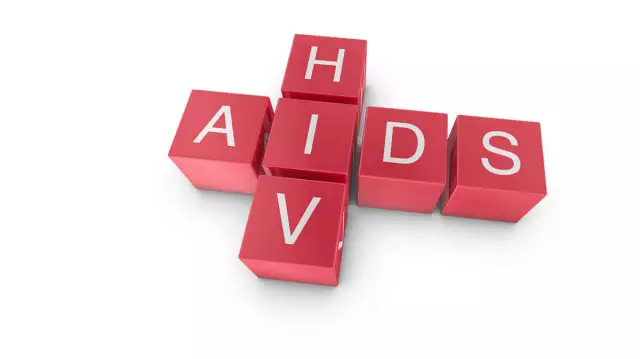- Author Rachel Wainwright wainwright@abchealthonline.com.
- Public 2023-12-15 07:39.
- Last modified 2025-11-02 20:14.
Ornithosis
Brief description of the disease

Psittacosis is an acute infectious disease that manifests itself with lesions of the central nervous system and lungs, fever, intoxication, an increase in the size of the liver and spleen. The causative agent of infection - chlamydia Chlamydia psittaci - enters the human body from the external environment, where it can persist for up to 2-3 weeks, develops intracellularly.
Sources of psittacosis in humans are wild and domestic birds: ducks, turkeys, parrots, canaries, budgerigars and city pigeons. Most often, psittacosis treatment is required for people who are in constant contact with birds, in particular, workers in meat processing plants and poultry factories. Mostly psittacosis occurs in the cold season, and usually isolated cases of infection are detected. Familial outbreaks and epidemics are extremely rare. The pathogen enters the body during inhalation of dust, which contains the smallest particles of bird feces, and, consequently, chlamydia. In addition, psittacosis in humans can occur after accidental inhalation of fluff particles from sick individuals. Patients with psittacosis are not dangerous to others, and therefore they do not need urgent hospitalization in infectious diseases departments of clinics or isolation from the rest of the family.
What happens after infection with psittacosis?
So, chlamydia overcame protective barriers and entered the body through the mucous membranes of the upper respiratory tract. After that, they quickly penetrate the bronchioles and small bronchi, often reaching the allevoli, which provokes inflammatory processes. Reproduction of pathogens occurs in cells. If, during the diagnosis of psittacosis, the symptoms were interpreted incorrectly and treatment was delayed, chlamydia will have time to penetrate the bloodstream, cause intoxication and damage to various organs and systems - from the adrenal glands to the central nervous system. Poisoning with toxins is explained by the influence of both the pathogen itself and the products of its vital activity.
Sometimes the infection enters the body through the lining of the digestive tract rather than through the upper respiratory tract. In this case, the development of psittacosis occurs according to the scenario described above, but without pneumonia, which is characteristic only of aerogenic infection. We also note that after an infection, immunity is developed, but it is short-term and unstable, therefore, cases of repeated diseases are possible. Only comprehensive prevention of psittacosis and regular examinations of workers in poultry farms and other enterprises working with birds can help here.
Symptoms of psittacosis and clinical picture
The incubation period for psittacosis ranges from 6 days to 2 weeks. In patients, there is an acute and chronic course of the disease, while the acute form is divided into typical (pneumonia) and atypical (ornithosis meningitis, psittacosis in people without lung damage, meningopneumonia).
Acute psittacosis. It starts with a sharp rise in temperature (up to 39 degrees), after which the following symptoms appear in patients:
- general weakness, weakness;
- headache;
- decreased appetite;
- severe pain in the muscles of the back and limbs;
- runny nose, nasal congestion;
- dry and sore throat.
After 2-4 days, the first signs of lung damage appear: chest pain, aggravated by inhalation, dry cough, secretion of mucopurulent sputum. Intoxication and fever during this period are either kept at the initial level, or slightly increase. If psittacosis in humans is not diagnosed in time, treatment should include correction of the liver and spleen. At the end of the first week, they greatly increase in size, accompanied by vegetative-vascular disorders and rapid fatigue even with minor physical exertion. We also note that even after the patient's condition has normalized, his health remains poor for a long time, which is associated with the residual effect of toxins. Full recovery occurs only 2-3 months after the start of the course of treatment.
If the treatment of psittacosis was insufficient or absent altogether, the infection spills over into a chronic form. Patients with psittacosis have all the signs of bronchitis, prolonged intoxication, constantly high temperature, which, however, rarely rises above 38 degrees. Chronic psittacosis can last 4-5 years or more.
Possible complications of psittacosis
The most dangerous consequences of psittacosis include myocarditis, thrombophlebitis, the development of acute heart failure and hepatitis. With the development of secondary infections in patients, neuritis and purulent otitis media are observed. In pregnant women, psittacosis often causes spontaneous abortions. Intrauterine infection does not occur.
Psittacosis in humans - treatment of the disease

In the treatment of psittacosis, patients are prescribed antibiotics from the tetracyclines group (vibramycin, doxycycline, tetracycline). The course of treatment lasts 4-7 days until the temperature drops to a normal level, and then for another 10 days to consolidate the results achieved. If patients have an individual intolerance to tetracyclines, the treatment of psittacosis involves replacing them with chloramphenicol or erythromycin. They are less effective and therefore the complete recovery of patients can come much later.
Prevention of psittacosis
Prevention of ornithosis is reduced to early detection of infection among poultry, regulation of the number of pigeons and sanitary and veterinary measures at poultry farms and other enterprises related to the breeding of birds and processing of their meat. To check imported products, quarantine measures are required. Note that the prevention of psittacosis is the only way to prevent infections, since there is simply no vaccine against this disease.
YouTube video related to the article:
The information is generalized and provided for informational purposes only. At the first sign of illness, see your doctor. Self-medication is hazardous to health!






